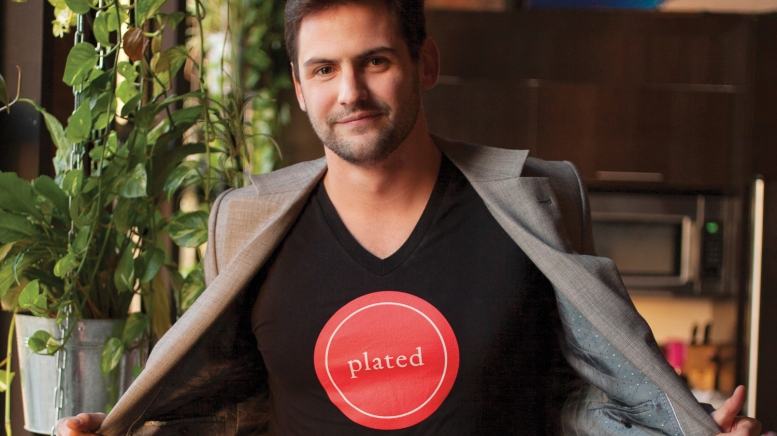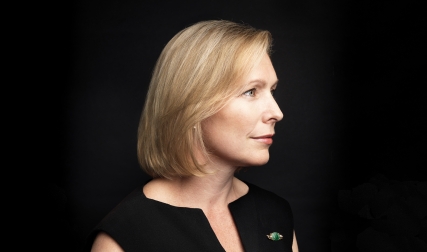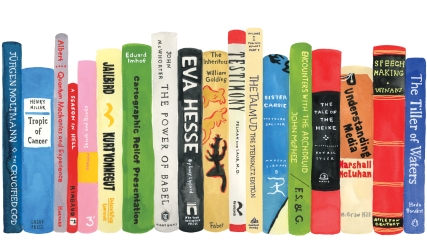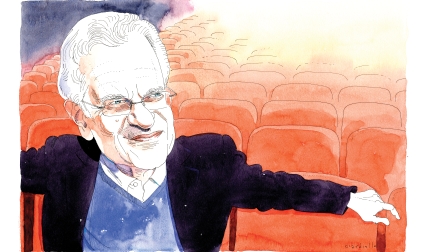One Halloween, when I was 8, I went trick-or-treating with a giant Hefty garbage bag. When I got home that night, the bag was packed with hundreds of pieces of candy.
Of course, at the time, I had no idea that candy was riskily altered food, full of empty calories and processed chemicals I couldn’t pronounce. All I knew was I wanted to eat it, and nobody was going to come between my pudgy little fingers and my candy.
You can imagine my surprise when my mom said, “Nick, you can keep 10 pieces, and you can put 10 more in the freezer, but you have to either throw away the rest or give it to other kids.”
This was totally unacceptable. “I don’t want to give it away,” I said. “I want to eat it.”
“You can’t eat it.”
“Fine.”
What my mom didn’t know was that by her toeing a hard line on the Halloween candy, she was instilling in me my first entrepreneurial aspirations. No way was I going to throw that candy away. If she wouldn’t let me eat it, I was going to sell it.
In the early 1990s, computers were still relatively new, so I typed super bootleg signs that read “Candy for Sale.” I put my phone number at the bottom, printed them out, and walked around our neighborhood, stapling them to telephone poles.
Within a day the police called my parents, telling them it was against regulations to sell loose candy without a permit. Luckily for me, my parents were more amused than angry, and my dad still talks about how that was my first encounter with regulatory limitations of conducting business.
By the time I went to Dartmouth, between grappling with my parents’ divorce and dealing with a gamut of adolescent hormones and emotions, I found that I was like a shark—as long as I constantly kept moving forward, I survived. Laps around Occom Pond turned into running 30, then 40, then 50 or more miles at a time. I’d stuff my backpack full of Clif Bars, PowerGels, cookies, and whatever else I could get my hands on and jump onto my motorcycle. Then I’d roar into the White Mountains, where I would run for up to 15 hours.
I was a total wild man. Alone in the mountains for hours on end, I wouldn’t even pack water—I’d just drink out of streams wherever I found them. I’d always hated being the chubby, big kid, and now for the first time in my life I could eat whatever I wanted. I’d scarf down thousands of calories during the course of a day.
Part of what drew me to running those crazy distances was that I could stuff my face and burn it all off. My running allowed me to unleash my inner fat kid, the one who wished he could have eaten that whole Hefty bag of Halloween candy. I was literally and figuratively trying to outrun both my adolescent inner demons and my bad eating habits.
During my sophomore year, I decided I was going to be the youngest person to ski to the North Pole. It was a wacky scheme. I spent spring break in the remote Canadian territory of Nunavut, doing a 10-day polar-exploration training session to prepare myself. Then I fell into the Arctic Ocean up to my neck. It was 25 below outside. I spent the rest of the day thawing out in my tent, feeling enormously lucky to be alive.
After that harrowing incident, I realized I wanted my life to be about more than freezing to death. I decided skiing to the North Pole was my version of proving myself to the world, but I wasn’t even remotely sure what I was trying to prove. I wanted to have an impact. I wanted to be a part of something bigger than myself and improve people’s lives.
So I went to Harvard Business School, thinking it would take me closer to my goal. A few weeks after earning my M.B.A., I became a Marine Corps officer—making me one of the few Harvard Business School alums since WW II to be commissioned after graduating. The last part of my training consisted of a mission in the Mojave Desert. We didn’t eat fresh food for weeks. Instead we tore into meals ready-to-eat (MREs), probably the worst food ever invented. Worse than Spam. Worse than a candy-filled Hefty bag.
The whole time I was in the desert I felt we could do better than MREs.
A few years later, as I transitioned to the Marine Corps Reserve and moved back to Manhattan, I realized it was impossible to outrun my broken relationship with food. Simultaneously, I developed a deep respect for entrepreneurs who left jobs to build businesses. I saw how fashionable it was to romanticize them. Politicians praised them. Tabloids covered their lifestyles.
I knew the reality of entrepreneurship was as romantic as packing boxes and dirty fingernails—and I wanted in. I wanted to help Americans eat better and realized that reconnecting with cooking was the starting point. I asked myself, “What if we can create a new and better way to cook dinner?”
In June 2012, a Harvard buddy and I started Plated.com from my kitchen counter on West 14th Street. We wanted to build a technology-driven meal-delivery company whose mission would be to create a world where healthy, affordable, delicious food is available for everyone. Before being acquired by Albertsons Companies last year, we raised more than $90 million in venture capital, created more than 1,000 jobs in four states, and shipped tens of millions of meals across the country.
I have been fortunate enough to be able to craft my passions into a calling. I often think of those long, solitary runs through the mountains of New Hampshire. Dartmouth gave me the latitude, fortitude, and confidence to chase my dreams and build them into reality. Now if I can only recruit an army of Hefty bag-wielding minions to help me spread the gospel.
Nick Taranto is the author of The Evolved Eater: A Quest to Eat Better, Live Better, and Change the World (St. Martin’s Press).




